6 ways to enjoy food despite ulcerative colitis
These expert tips can help you take comfort in food again.
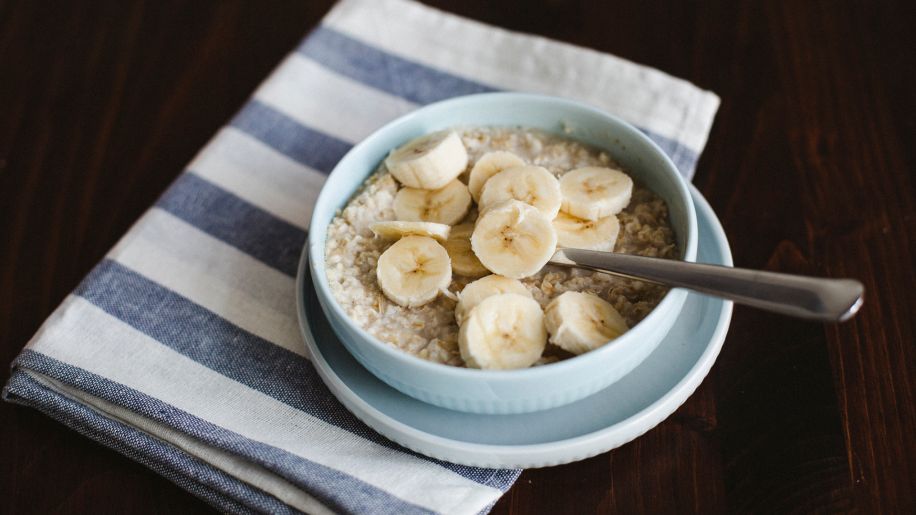
IBD Eating Made Easy
Sitting down to a delicious meal is supposed to be one of the most enjoyable parts of our day. But that's not always easy if you have inflammatory bowel disease (IBD), because what you eat has a big effect on how good—or bad—you feel. Luckily, a few dietary guidelines can help you better manage ulcerative colitis or Crohn's disease, says Lori Woodward, RD, a nutritionist at Atlanta Gastroenterology Associates. "These tips will aid in the digestion and absorption of foods for IBD patients and may help relieve many of the symptoms associated with this condition," she says.
Medically reviewed in September 2018.

Check Menus in Advance
For many people with IBD, eating out at restaurants is the biggest challenge when it comes to managing their diet. One of the best tips is to review the restaurant menu before you go, so you can see what your options will be and make smarter choices ahead of time. Most places nowadays post their menus online, and some even mark which options are best for people with restricted diets, like low-fat entrees.
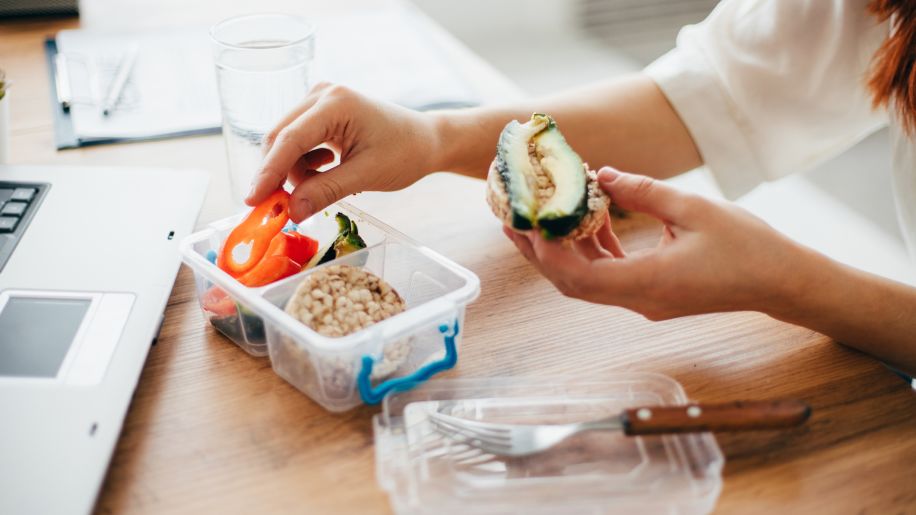
Eat Smaller, More Frequent Meals
"This is one of the most common tips I suggest for my IBD patients," says Woodward. Eating smaller, more frequent meals and snacks—rather than just three large meals—is recommended because your digestive system can better handle smaller loads. This is especially helpful when you're dealing with an IBD flare-up.
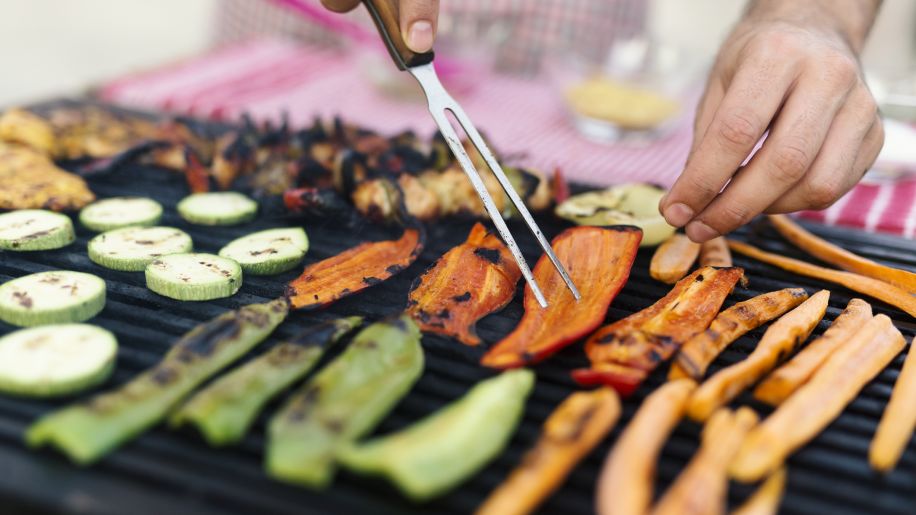
Opt for Cooked Veggies Instead of Raw
"Raw fruit and vegetables, as well as legumes, can be gas-forming and may lead to additional bloating, gas and stomach pain," says Woodward. But you don't want to eliminate fresh produce from your diet completely, because fruits and vegetables are mainstays of a healthy diet. Just plan on eating these foods cooked rather than raw. Another way to make sure your diet includes adequate fiber is to eat whole-grain breads.
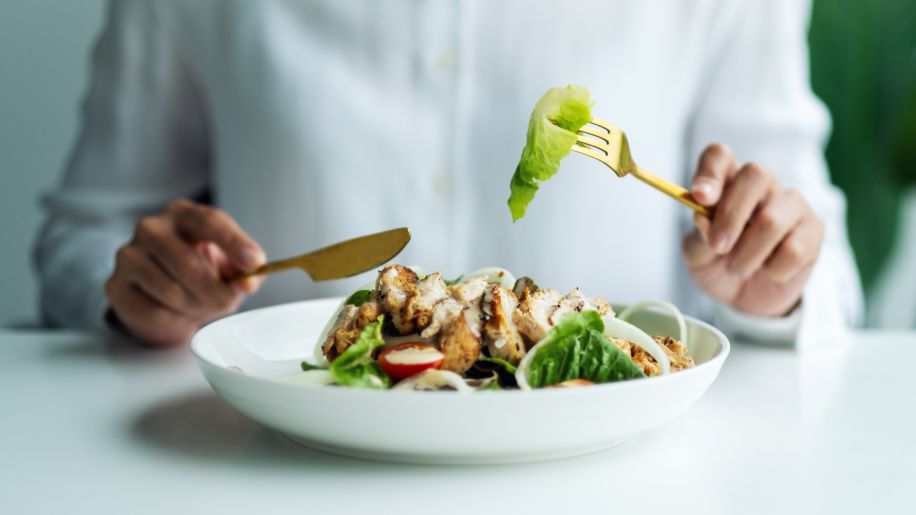
Eat a Low-Fat Diet (for Crohn's)
If you have Crohn's disease, fatty foods are difficult to digest and can often cause stomach upset. "Low-fat meal planning includes preparing lean meats, fish and poultry; using minimal fats, oils and butter; and avoiding all fried foods," says Woodward. And to help say goodbye to gravies, sauces and creamy dressings, try some tastier, easier-to-digest vinaigrettes or low-fat dressings on side dishes.
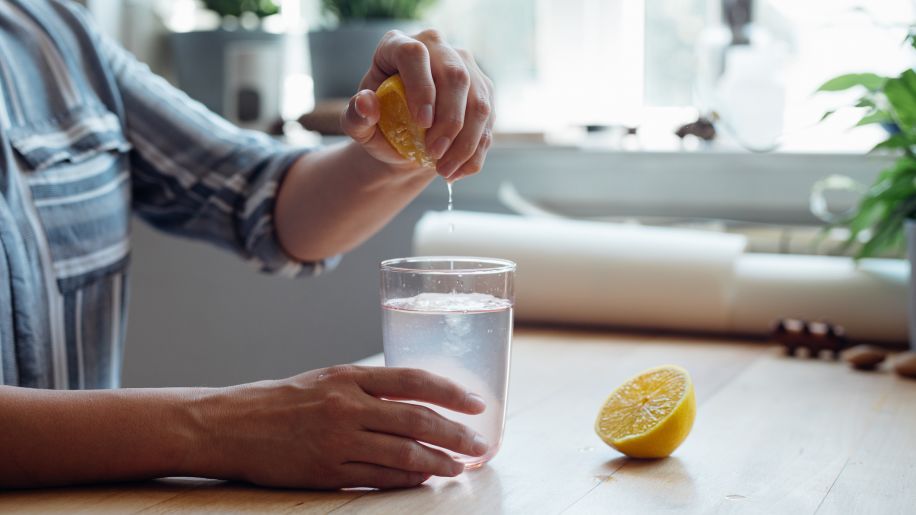
Drink Up
Taking in plenty of fluids throughout the day helps keep you well-hydrated and aids in digestion. Just be sure you reach for plain water over caffeinated, carbonated or alcoholic drinks, which can make IBD symptoms worse. "You should drink half of your body weight in ounces of fluid, which means that a 140-pound person needs 70 ounces a day," says Woodward. If the taste of plain water doesn't suit you, try livening it up with a couple slices of lemon, lime or cucumber.

Talk to Your Doctor and Dietitian
While these foods may help ease your IBD symptoms, keep in mind that diet alone is usually not enough. That's why it's important to work with your doctor and dietician to develop a comprehensive treatment plan, including more personalized recommendations. For example, dietary advice can vary depending on whether you have Crohn's disease or ulcerative colitis, how much of your intestine is affected, and whether or not you're currently having symptoms. With expert advice, along with these helpful tips, you can start enjoying food again despite having IBD.
Featured Content
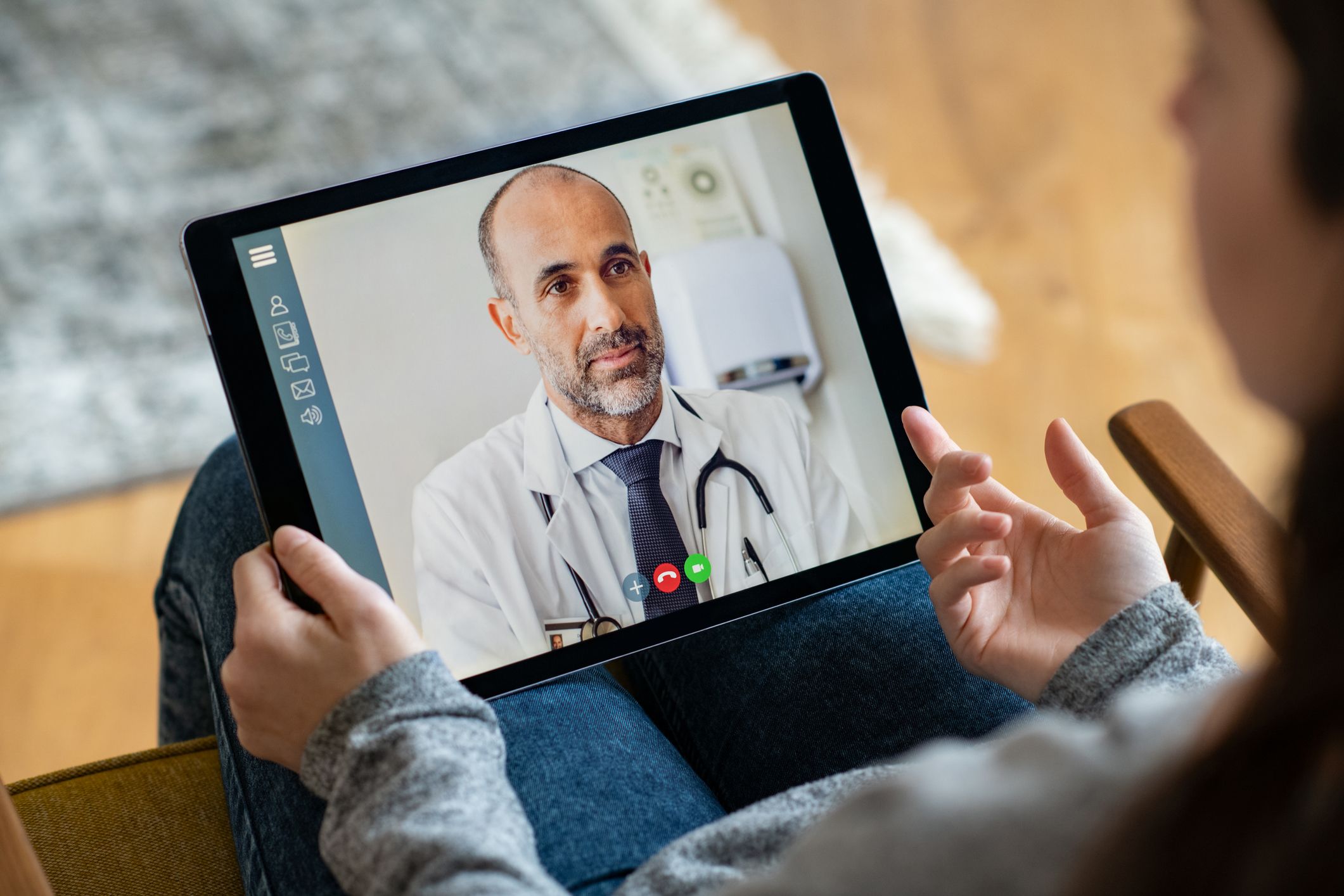
article

article

article

article

slideshow
